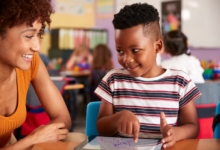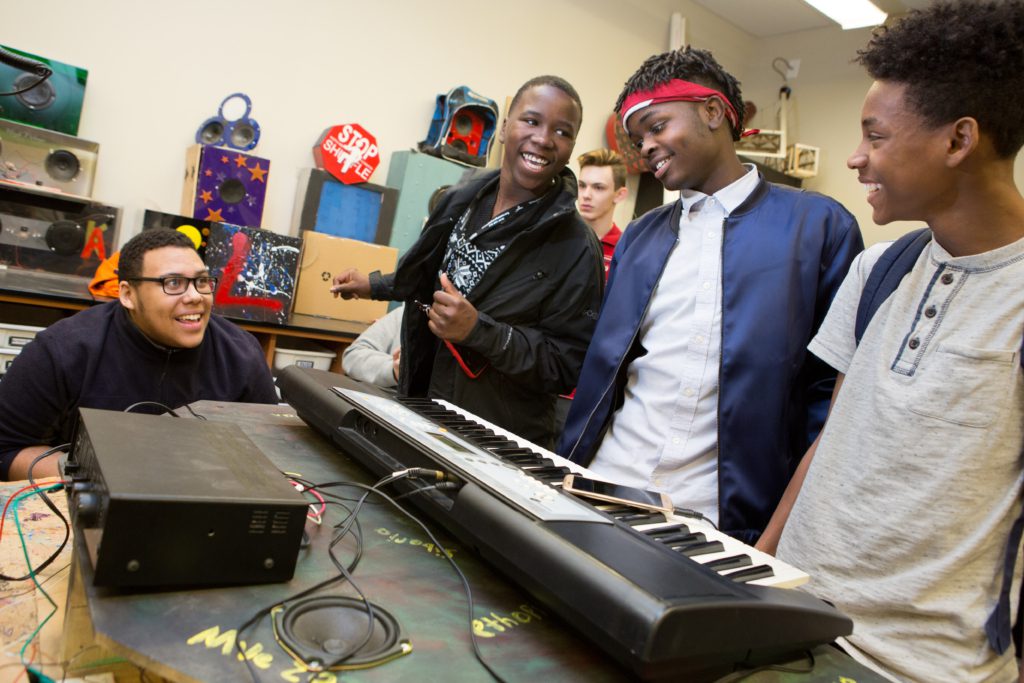Everybody remembers their best teacher. Mine is Dr. M, my graduate advisor and forever mentor. She’s someone I felt I could turn to for support, both academic and personal, because she recognized me as a full person, not just a student. This meant respecting my biracial background and Korean culture, being patient with my dedication to family responsibilities, and taking the time to learn about what it means for me to have a quadriplegic (and annoyingly brilliant) older brother. Because Dr. M took the time to understand and build a positive relationship with me, she was better equipped to decipher what resources I needed, when to be patient and when to push and challenge me, and how best to advocate for my academic success.
Relationships are the key to understanding students’ experiences, social and emotional well-being, and racial and cultural identities. Dr. M made the effort to get to know me, believed in me, challenged me, and supported me. I could bring my authentic self to my academic environment, and despite the ever-present feeling of imposter syndrome common among graduate students, she made me feel like I belonged there and that my work and my words and thoughts mattered.
Although my best teacher was in graduate school, the P-12 experience of students should be abundant with teachers like Dr. M. Relationships amongst P-12 students and between students and educators are paramount, since children are undergoing various developmental changes that are malleable and easily influenced by their experiences. The past 19 months have been particularly challenging as they have navigated a changed world through pivotal developmental stages, disconnected from friends, family members and educators who are critical to their development. One survey from fall 2020 found that 1 in 4 teens said they connected with teachers less than once per week, and 70% of teens said they communicated less frequently with teachers since the start of the pandemic. In the same survey, 1 in 3 teens reported increased cyberbullying.
The increased stress students have experienced, plus disconnection and strain on relationships, has been reflected in the mental health of students, with increases in suicides. During this lonely pandemic, many of us have felt the absence of strong relationships in our own lives and realized how different our experiences are without them, especially when going through difficult times.
This year especially, every grown-up in schools must be intentional about fostering strong relationships both between students and adults, as well as among students. Intentionality requires training for educators, dedicated time in the schedule to build relationships, and integration with the curriculum. True intentionality can ensure adults are more effective in building strong, positive relationships, which in turn creates conditions in which student learning can be accelerated in a time of unfinished learning. This matters most for students who too often have been given the message that they don’t belong in their schools. It’s no secret that many students have had negative relationships in their schools that have not only failed to support their learning, but in fact have hindered it. Black students in particular are vulnerable to issues of belonging given curricula do not often reflect their cultures, and they often feel educators are not in their corner. Given the increased levels of environmental adversity and personal obstacles, schools must prioritize strong relationships to foster their strengths and ensure they thrive despite the stress and difficulties of the past year and beyond.
Thankfully, there are clear, evidence-based ways to support educators in building these relationships, and ARP funds can be used to advance these efforts. Districts can:
- Create and sustain regular feedback loops with students, families, educators, and community members by creating commissions, working groups, or convenings which advance opportunities for understanding, power-sharing, and relationship-building.
- Ensure schools are safe for in-person instruction so that educators can engage with students without creating more fear and distress about COVID-19, and invest in whole child supports that educators can then connect students with.
- Create professional learning opportunities for educators to practice positive discipline strategies as well as strategies that connect students’ academic learning to their backgrounds, communities, and experiences (e.g., culturally sustaining pedagogy and service learning).
The best teachers are the ones students build relationships with. Districts now have the funds and the opportunities to now ensure teachers have the capacity to do this well. Let’s seize this opportunity.





